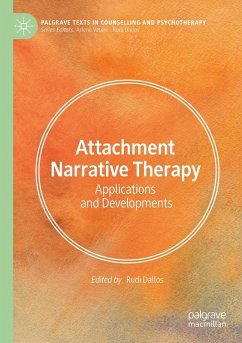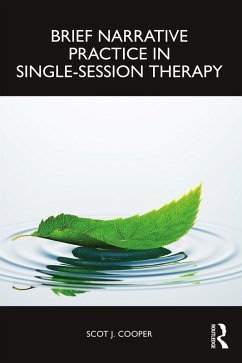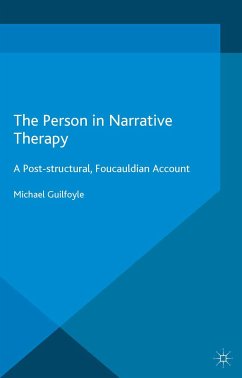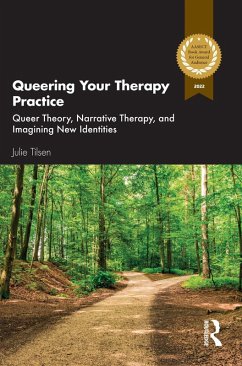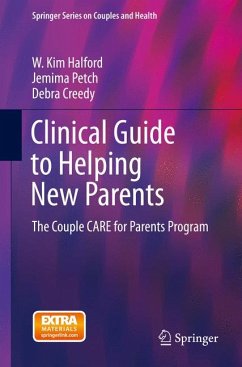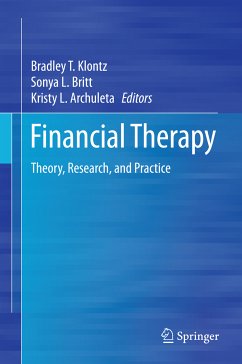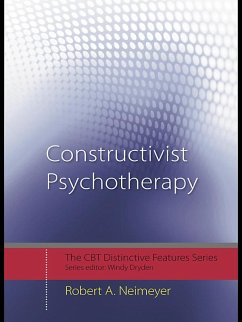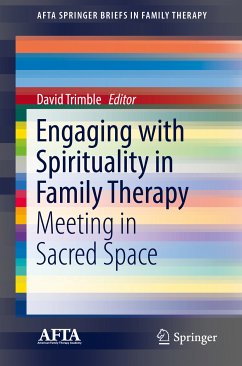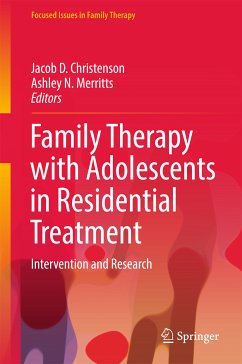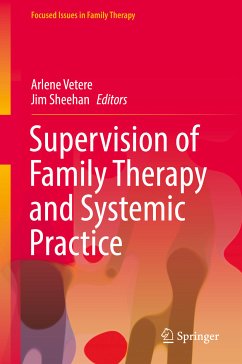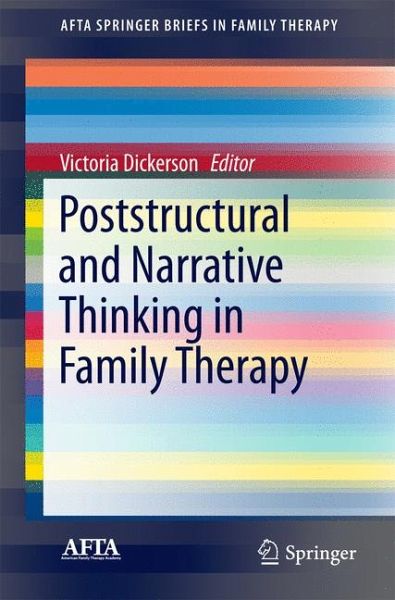
Poststructural and Narrative Thinking in Family Therapy (eBook, PDF)
Versandkostenfrei!
Sofort per Download lieferbar
40,95 €
inkl. MwSt.
Weitere Ausgaben:

PAYBACK Punkte
20 °P sammeln!
This brief applies variations in poststructural thinking and practice to the field of family therapy. Poststructural thinking pervades the world of therapeutic practice in ways that are often invisible to both the theoretician as well as the practitioner. In this brief, the authors focus on what poststructuralism has brought to our understanding. What follows are chapters that speak to training and teaching principles as well as to practices that draw on ideas about "becoming," "relationality," and "the aesthetics of engagement." Each chapter builds on the other with the last one reprising a k...
This brief applies variations in poststructural thinking and practice to the field of family therapy. Poststructural thinking pervades the world of therapeutic practice in ways that are often invisible to both the theoretician as well as the practitioner. In this brief, the authors focus on what poststructuralism has brought to our understanding. What follows are chapters that speak to training and teaching principles as well as to practices that draw on ideas about "becoming," "relationality," and "the aesthetics of engagement." Each chapter builds on the other with the last one reprising a key component of narrative understanding. From a teaching institution in Auckland, NZ to an online training program in Minneapolis, from new thinking about "auto-ethnography" to a "de-centered" practice to "poetic" resistance, the chapters in this brief offer exciting ideas and practice possibilities.
Dieser Download kann aus rechtlichen Gründen nur mit Rechnungsadresse in A, B, BG, CY, CZ, D, DK, EW, E, FIN, F, GR, HR, H, IRL, I, LT, L, LR, M, NL, PL, P, R, S, SLO, SK ausgeliefert werden.



